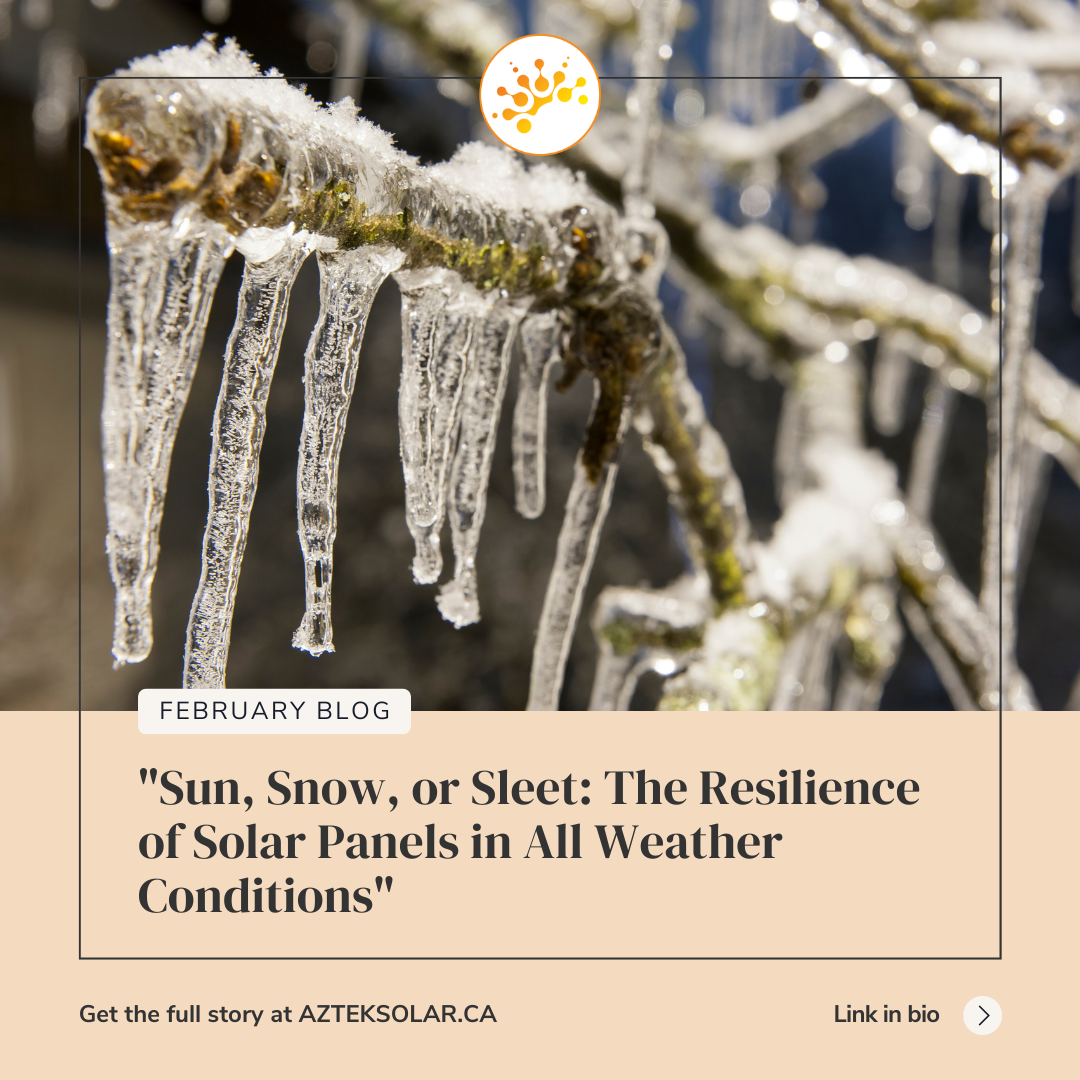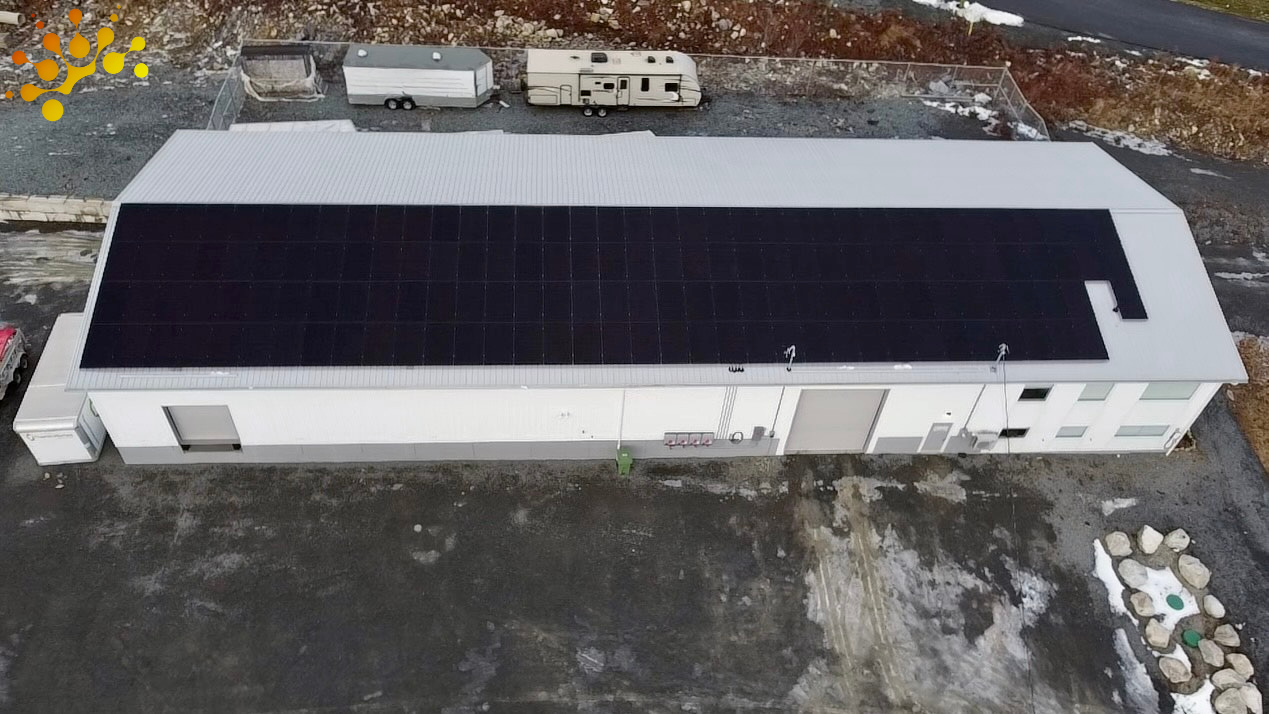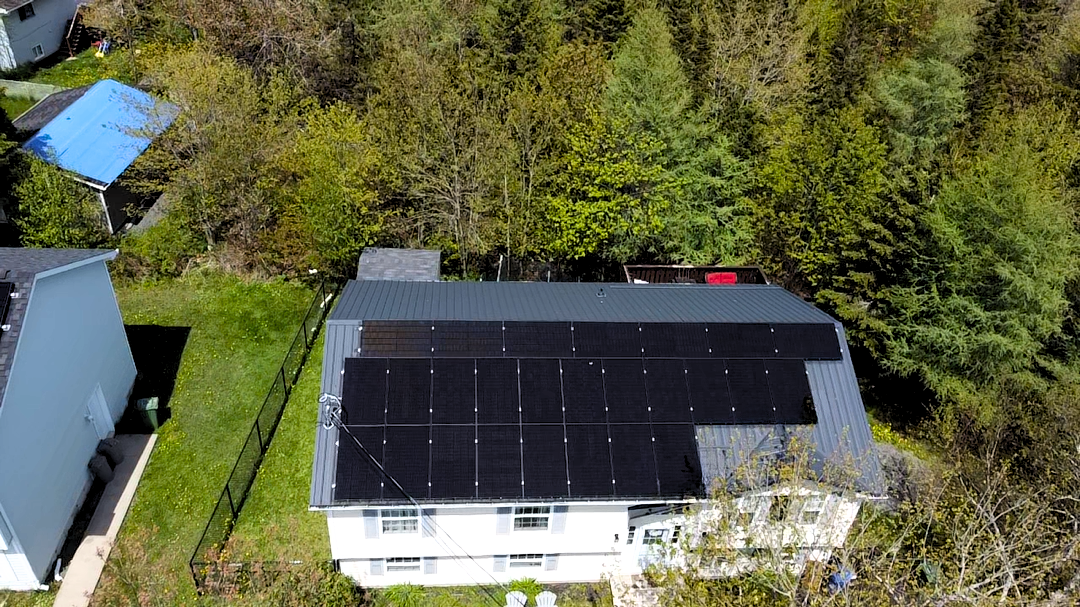Walk me through converting my house to total solar power.
This article will serve as a go-to guide for homeowners in Atlantic Canada looking to convert their homes to total solar power.
By adding solar to your home, you can earn financial benefits, improve your home’s resilience to the event of a local power blackout or other emergencies, and most importantly, reduce your home’s environmental impact.
The vast majority of solar systems being installed currently are grid-tied, meaning electricity flows to the home’s electrical panel where it is used up by the home’s electrical equipment, with any surplus electricity being exported back to the electrical grid.
A typical grid-tied solar system is made up of the solar panels themselves, racking equipment to affix it to a roof or a ground mount, one or more inverters to convert the electricity into its more usable AC form, and any other piece of electrical equipment necessary to connect an approved system to the home and/or the grid. These “balance of system” components are in most cases required by the Canadian Electrical Code, and include things like appropriately sized wiring, disconnection devices, junction boxes and breakers, along with a bi-directional utility meter and optional system monitoring equipment.
When considering a solar system for your home, one of the key decisions you will need to make is which type of inverter to install. After the panels themselves, inverters are the most important equipment in your solar PV system. There are three main types of inverters currently available for your grid-tied solar PV system: string inverters, microinverters, and power optimizers (also known as string inverters with power optimizers or DC optimizers).
Deciding if a solar system is right for you takes a trained eye. How much usable roof area is available? What is your sun exposure? How much electricity do you use? What size system can your electrical panel support? The best way to answer these questions is to speak with an approved solar installer.
When you decide to convert your home to solar power, the first thing that you can do is to make your home as energy efficient as possible before you do anything with solar panels. You can do so by:
- Installing energy-efficient windows
- Using environmentally friendly insulation
- Installing energy-efficient appliances
Many people are concerned about the cost of installing a solar system. The good news is that solar is becoming increasingly affordable, especially with assistance from rebate and financing programs
Net metering (also known as net energy metering or NEM) is a solar incentive that allows you to store energy in the electric grid. When your solar panels produce more electricity than you need, that energy is sent to the grid in exchange for credits. Then, at night or other times when your solar panels are underproducing, you pull energy from the grid and use these credits to offset the costs of that energy.
With the right size solar energy system, you can produce enough electricity to match your home’s electricity use for the entire year. However, the amount of electricity your solar panels produce will vary throughout the year. Net metering helps you account for these differences by crediting you for the excess electricity your panels produce so you can use it later.
Residential solar PV systems must be appropriately sized to meet your electricity consumption. This means that the amount of electricity your solar PV system produces must be comparable to the amount of electricity used by your home. As an example: Nova Scotian homes use an average of 10,000 kWh per year. Where a well-designed solar PV system generates around 1,150kWh/kW of electricity per year in Nova Scotia, then a solar PV system that is 8.7 kW would be sized to meet approximately 100% of its annual energy use. Under the Enhanced Net Metering Program, all grid-tied solar PV systems require that an Interconnection Request and Equipment Information Form be submitted to and approved by NSPI. Before you have a solar system installed, your solar installer will typically complete this form on your behalf.
Converting your home to solar power may cost you a bit upfront, but if you do the math for the next ten or twenty years, you will be coming out ahead by quite a bit in financial savings. You are also being conscientious of the environment and the rapid depletion of fossil fuels. Solar power is becoming a more viable option for homeowners as prices continue to drop and people hear more and more about it. The time has never been better for Nova Scotians to reduce their greenhouse gas emissions and save money by embracing solar energy.
Thanks for reading!
Brian McKay
(aka The Solar Guy)

For more information about a Solar Energy Solution, including Whole Home Solar PV and Solar Pool Heating solutions for your home or business, please contact AZTEK SOLAR for your free on-site evaluation.
AZTEK SOLAR is a leading Nova Scotia residential and commercial solar installer, serving Halifax, Dartmouth and the surrounding areas throughout rural Nova Scotia.
With expertise in a wide variety of systems, including Solar PV (grid-tied) systems, solar hot water and solar pool heating systems, AZTEK SOLAR has helped hundreds of Atlantic Canadian homeowners, farm operations, business owners and municipalities lower their energy bills while reducing their carbon footprint.
#SolarIsNow #RenewableEnergy #AztekSolar



